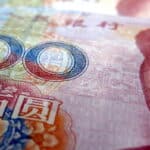by Luca Ruggeri
Turkey, for those interested in economics, continues to provide unprecedented insights.
On Thursday, August 18, Turkey's central bank further lowered its interest rate by as much as one percentage point (from 14 percent to 13 percent), in splendid solitude as other major central banks are currently positioned toward raising rates to combat inflation. The reduction baffled observers, who had expected rates to be maintained, and was justified by the central bank with economic weakening related to the current geopolitical risks. Explanation that did not convince analysts in the least.
The constant lowering of interest rates has contributed to high inflation, and the Turkish Statistical Institute quantified annual inflation in July at nearly 80 percent. The analysis by individual component shows as the second item, in order of growth, food and non-alcoholic beverages (+94.65 percent), with predictable repercussions on the household budget of the less affluent population layers. Moreover, non-governmental research institutes estimate real inflation well above 100 percent per year. A situation that explains the government's decision to raise the minimum wage, admittedly a non-conclusive measure that has further supported inflation growth.
The Turkish approach about interest rates has resulted in a continuous depreciation of the national currency against the dollar. The dollar-to-Turkish lira exchange rate at the beginning of 2021 was 7.46; as of this writing it is hovering around 18.10 lira per dollar, so with a very heavy devaluation and pronounced volatility. The Turkish central bank has tried to support the lira by selling its dollar reserves, but market pressure has caused, in addition to the lira's own devaluation, the almost total destruction of the central bank's foreign exchange reserves.
However, the amount of residual foreign exchange reserves is disputed by analysts, since the central bank accounts for swap agreements with other central banks as reserves; such agreements allow for the use of the signatory parties' currencies and not of valuable currency such as the dollar, but certainly do not constitute a reserve per se.
The difficult situation has led to other "curious" financial initiatives. For example, in an attempt to retain foreign investors - obviously unenthusiastic about investing in a nation with negative real yields and questionable monetary policy - there has been zero-interest Turkish lira financing offered to nonresidents against the purchase of local bonds, to be held for at least two years, with a guaranteed dollar yield of 4 percent, which is evidently little compared to Turkey's credit risk.
Previously, in 2021, lira deposits were introduced with a state guarantee to pay the difference between the rate offered by local banks and the lira's depreciation against the dollar. Turkish investors have adhered to a limited extent, but the expense to the Turkish state will still be heavy given the lira's devaluation, accentuated by the latest rate maneuver.
Turkey's peculiar central bank policy is generally interpreted as being put in place in obedience to the Erdogan government's belief that interest rates are contrary to Islamic principles and that high interest rates increase inflation (exactly the opposite of what economists in the rest of the world repute, beyond the obvious misgivings about heavy governmental meddling in central bank operations). A more pragmatic interpretation of the Turkish government's behavior points to how negative real interest rates allow it to push the economy, which in fact grew 11 percent in 2021 and 7.9 percent in the first quarter of 2022, ahead of elections next year.
If the latter interpretation is correct we are facing a bet whose key element is time. Indeed, Turkey is a transformative country with a deficit trade balance that is in dire need of dollars to pay for imports (on pain of halting production activities) and its companies' debts, but the lira's defense in the foreign exchange markets has depleted its currency reserves without halting the Turkish currency's continuous devaluation.
The repercussions of such economic trends are not limited to economics and finance but end up being a constraint on the foreign power policy that Turkey has put in place in recent times, for example in Syria, Libya and Somalia, sometimes to the detriment of Italian national interests.
In this context, last April's meeting between Erdogan and the Saudi Arabian rulers certainly marks an attempt to break Turkey's isolation in its own geographic area; but the radical reversal in attitude toward Saudi Arabia, after the heavy confrontation unleashed at the time of the Khashoggi murder, finds an obvious motivation in Turkey's economic difficulties. As substantiated by the issues discussed in the meeting, among which stands out a financial support quantified, by journalistic sources, in 10 to 20 billion dollars.
Senior Fellow at the Centro Studi Machiavelli. A graduate in Economics, he worked for over twenty years at a large Italian bank and currently serves as a general manager at an institutional investor.









Scrivi un commento